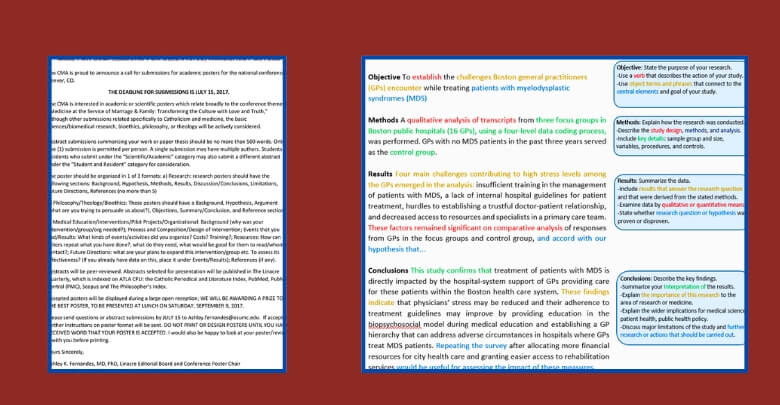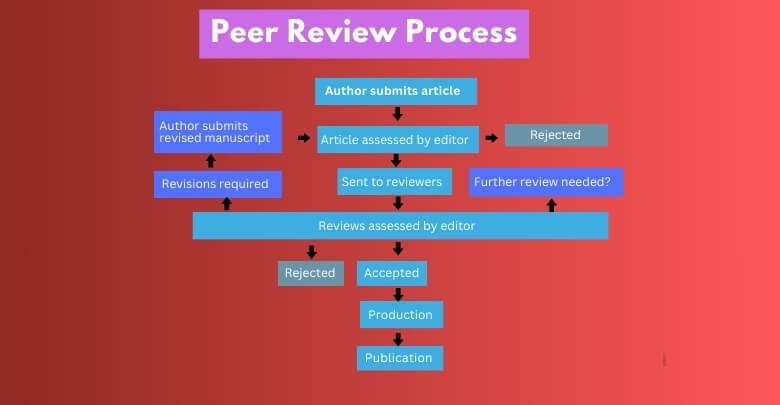The submission of an abstract for a medical conference is significant to sharing your research and gaining professional recognition. It provides an opportunity to contribute to medical advancements and network with experts in your field. If you’re considering submitting an abstract, you might be interested in knowing, “How can I submit an abstract for a medical conference?”
Well, submitting an abstract for a medical conference is an easy process. You need to follow the conference guidelines, prepare a concise abstract according to the required format, and submit it by the deadline through the conference’s specified submission portal.
This process confirms that your work is considered for presentation. Read on to get detailed steps and tips for a successful submission, so you can maximize your chances of getting accepted.
What Makes an Abstract So Significant?
An abstract holds great significance as it stands as the first impression of your research. It summarizes your study’s main points concisely. Abstracts are used by conference reviewers to determine if your work is appropriate for their event.
A well-crafted abstract attracts the audience’s attention and summarizes the research’s main points. It encourages them to attend your presentation, boosting your visibility and networking at the conference. In this way, you can gain valuable feedback and create collaborations for the future.
As well, abstracts often appear in conference proceedings, adding credibility to your work. As a result, you will have a better academic record and a better reputation professionally. It can also open doors to further funding opportunities and research opportunities.
Is It Hard to Submit an Abstract to A Medical Conference?
No, submitting an abstract to a medical conference is not particularly hard, but it does require attention to detail. You need a clear view of your research and the ability to summarize it concisely. Be sure that your abstract follows the conference’s specific guidelines.
The opportunity to submit an abstract to a well-known medical conference can be competitive. This means your abstract must stand out for its clarity and relevance. It should effectively highlight the significance of your research and its implications for the field.
Research must be communicated engagingly and straightforwardly. Your abstract should summarize your research and pique reviewers’ interest. Keep in mind that a compelling abstract can raise your professional career by making a lasting impression.
How Can I Submit an Abstract for A Medical Conference?
An abstract submission for a medical conference is an important part of sharing your research with the medical community. This involves summarizing your findings concisely and engagingly presenting them. For more details on this topic, here is a step-by-step instruction on how to submit an abstract for a medical conference:
Step 1: Be aware of the Conference Requirements
Medical conferences have specific guidelines for abstract submission, including format, word count, and content. You should familiarize yourself with these requirements before submitting your abstract. Check if the conference focuses on particular themes or topics that your research could address.
Step 2: Conduct Thorough Research
Your abstract should be based on well-researched and up-to-date data. This step is necessary to present accurate and relevant findings to capture the conference committee’s attention. Be sure your research aligns with the latest advancements in your field to maintain relevance.
Step 3: Write a Clear and Concise Abstract
Create a clear and concise summary of your research. Having a clear idea of how to write an abstract for a conference presentation is essential, as it ensures that your message is understood at first glance. It is recommended that your abstract include the purpose, methods, results, and conclusions of your study.
Step 4: Peer Review Your Abstract
Check your abstract with peers or mentors in your field before you submit it. They can provide feedback on your presentation and help you make it more impactful. This collaborative review can highlight areas that need more detail or simplification.
Step 5: Revise and Edit Thoroughly
Revise your abstract based on the feedback. Make sure it’s clear and free of errors. Keep your abstract as professional as you can by paying attention to language and technical accuracy.
Step 6: Submit Before the Deadline
Don’t forget to submit your abstract through the conference’s portal. Be sure to meet the submission deadline to avoid any last-minute problems. A timely submission not only avoids technical difficulties but also demonstrates your professionalism.
The Review Process- What Happens After Submission?
After you submit your abstract for a medical conference, a detailed review process begins. Your research’s presentation depends on this phase. Having a better knowledge of this process can help you make better submissions in the future. Below is a detailed explanation of what happens after submission:
Initial Screening
Submissions are checked by well-known conference organizers. This includes format, length, and topic relevance. A submission that does not meet these basic criteria is often rejected. In this way, all entries are treated equally from the start.
Peer Review
The quality and relevance of your abstract is evaluated by a panel of experts. They assess the scientific merit and clarity of your submission. Getting feedback at this stage is key to refining future abstracts. The purpose of this process is to make sure the conference stays high-quality.
Decision Making
After review, the committee accepts or rejects each abstract. Some may require revisions before final acceptance. Authors are notified of the decision via email or a conference portal. This phase is often filled with anticipation for researchers.
Notification and Preparation
Accepted authors are informed to prepare for their presentation, which could involve a poster, an oral session, or both. They receive details regarding the presentation format and session times, which is crucial for effective preparation and optimizing their conference experience.
Tips for Structuring Your Abstract to Maximize Its Impact on A Medical Conference
The successful presentation of an abstract at a medical conference depends on its effectiveness. It represents your research and sparks interest among your peers. Here are some practical tips for structuring your abstract to make a lasting impact:
- Clarity is Key: Be clear in your writing so your research is easy to follow. Don’t confuse readers with jargon that is unfamiliar to them.
- Focus on the Problem: Describe the problem you addressed in your research. In this way, you can frame your abstract around a specific question or issue.
- Methodology Matters: Outline the methods used in your study clearly. By doing this, readers will be able to judge the validity of your research.
- Highlight Significant Results: Focus on the most impactful findings of your research. Make sure these results are presented as clear and compelling points.
- Conclude with Implications: Describe the implications of your findings at the end. Explain how they contribute to the field and suggest future research directions.
- Follow Formatting Guidelines: Be sure to follow the abstract formatting guidelines of the conference. Proper format increases readability and shows professionalism.
FAQs About How Can I Submit an Abstract for A Medical Conference?
Listed below are some FAQs and their relevant answers for how can I submit an abstract for a medical conference:
Is There a Specific Word Limit for The Abstract?
Yes, medical conferences typically specify a word limit for abstract submissions, often ranging from 250 to 400 words. This ensures that abstracts are concise yet informative, allowing reviewers to assess the research efficiently.
Can I Submit More than One Abstract to The Same Conference?
Yes, some conferences allow authors to submit multiple abstracts, but each one must be distinct and comply with submission guidelines. It’s important to ensure each abstract addresses a unique aspect of your research to avoid overlap.
Can I Update or Revise My Abstract After Submission?
Policies vary, but some conferences allow minor revisions before final acceptance, while major changes may require re-submission. It’s crucial to check the conference’s specific policies regarding abstract revisions.
Is There a Fee for Submitting an Abstract to A Medical Conference?
Usually, there is no fee specifically for abstract submission, but registration fees may apply for attending the conference. These fees typically cover access to sessions, materials, and networking opportunities during the event.
Can I Submit an Abstract as A Co-Author or Collaborator?
Yes, co-authors and collaborators can submit abstracts, but it’s essential to clarify the roles and contributions of each author in the submission. Ensure all authors agree to the abstract content and comply with the conference’s submission guidelines.
What Should I Do if I Miss the Abstract Submission Deadline?
Missing the submission deadline can result in your abstract not being considered for the conference. Contact the conference organizers to inquire about late submission policies or consider submitting your abstract to a future conference.
Conclusion
The opportunity to present your research at a medical conference is a vital step towards expanding your professional network. It starts with a clear grasp of conference requirements and involves preparing a clear, concise abstract.
The question of “How can I submit an abstract for a medical conference?” is at the center of this process. You can significantly improve your chances of acceptance by ensuring that your abstract is well-researched and well-written. Don’t forget to follow formatting guidelines and submit before the deadline.








